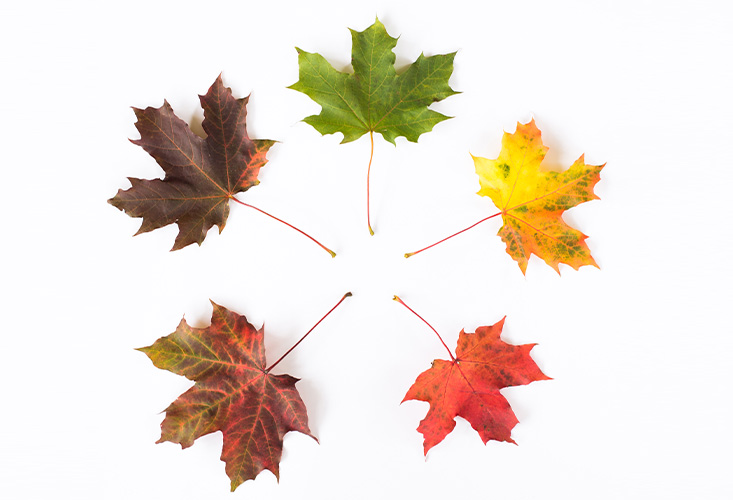People are discovering themselves, becoming disturbed by imperfections and seeking solutions due to changing living conditions and social media. One of the things that affects both men and women is baldness and hair loss, which can make people feel less confident. Hair transplants can help to give people back some of their self-confidence, and help them to approach life more positively. People also seem to be interested in finding out when the right time to get a hair transplant is. The best time for hair transplantation depends on the weather and your personal preferences. It can be done at any time of year, but hot weather increases the risk of sweating and sun exposure in summer. In winter, you might need to cover your head to keep warm. So, you can have it done at any time of year, but think about how it affects your comfort and the healing process. It's not always easy for people thinking of having hair transplant surgery to consider the weather when they're making up their mind. But what's really crucial is thinking about what it's like in the months and weeks after the operation. Whether it's summer or winter, that first 10 days after the surgery can be really tricky, so it's important to keep that in mind. Each season presents its own set of advantages and disadvantages. For instance, during winter, one is less affected by the harmful effects of the sun and there are no sweating issues. However, short hairstyles are less preferred in winter, and many individuals may find it difficult to spare time for the procedure due to the busy work and wedding season. Summer vacations provide an ideal opportunity for surgical procedures. Hats with broad brims and short hairstyles can help hide hair transplant scars during the summer months. However, it is crucial to protect oneself from the sun and water during the summer season. It's best to avoid activities like swimming in pools or the sea and long periods in the sun for at least 10 days after surgery. So in conlusion, there’s no perfect time for hair transplant surgery. The main thing is to avoid really extreme weather and to make sure you can fit it around your social life. It's been observed that hair loss increases during the transition from summer to fall, but it decreases during the transition from spring to summer. This is the ideal time for a hair transplant because the sun's power is weaker and the weather is milder. One of the main benefits of spring is that we can avoid the risk of high temperatures while still taking advantage of the cold climate’s effect on the hair healing process. The cooler weather is better for keeping the transplanted area clean and hygienic, which makes it easier to comply with post-operative hygiene requirements. When planning a hair transplant procedure, the summer season may be a more suitable option for organising work or vacation. In hot weather, rapid hair growth and skin regeneration can be more effective. In particular, tourists from abroad who receive more intensive hair transplant treatment in our country may wish to go on a tourist trip after their treatment, which is more feasible during the summer months. However, it is advisable to take additional precautions to protect yourself from the harmful effects of the summer season. For instance, it is recommended to avoid direct sunlight, as it can negatively affect the healing process and damage the transplanted hair. If you are planning a hair transplant procedure, the winter season may be more suitable for your schedule. In this case, you may find the positive aspects of winter in the healing process to be beneficial. During the winter months, the colder weather means you won't sweat as much and it will be much easier to keep your scalp clean. Cooler weather is optimal, particularly for those who do not experience seasonal skin issues, as it has a natural air conditioning effect and positively affects the healing process. It should be noted that there are certain negative effects associated with undergoing a hair transplant in the winter months. High humidity levels can have a detrimental impact on the healing process, and it is therefore advisable to avoid getting wet in the rain. Furthermore, the healing process of small wounds in the scalp after hair transplantation can be slowed down in cold weather conditions due to the fact that cold weather slows down the tissue repair process. The success of a hair transplant is influenced by a number of factors. Therefore, those considering this procedure should conduct thorough research before committing to it. They should be aware of the factors to be considered after the operation, the season in which they will have it done, what they should pay attention to during the healing process and have information about the care process. Hair transplantation is a valuable step in terms of health and aesthetics, providing a permanent solution to baldness and hair loss problems. However, there are many factors that affect the success of the procedure. One of the most important is what to do after the operation. If the instructions given by the doctor are not followed after the operation, you may not get an effective result from the hair transplant procedure. It is very important to choose a time when you can easily follow these rules, especially during the healing process. It should be noted that a certain amount of time is required for hair to regrow following a hair transplant. This time frame can vary depending on a number of factors, such as the age, health and characteristics of the donor hair. Additionally, it is important to note that hair regrowth varies depending on the season of the procedure.- The effect of the seasons on hair transplantation
- Hair Transplant in Spring: Advantages and Disadvantages
- Hair Transplantation in Summer: The Effect of Heat and Sun
- Hair Transplantation in Winter: Cold and Humid Weather Conditions
- The Effect of Seasons on Hair Transplant Results
The ideal time for hair transplantation: The Effect of the Seasons and Timing




